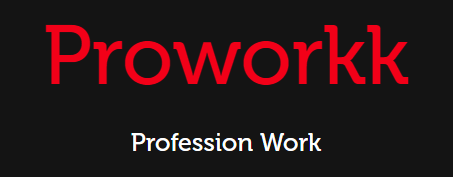Profession: Investment Banker
Experience: 8 years
Location: Isle of Man
My Personal Experience:
Becoming an Investment Banker was both a calculated decision and a leap of faith for me. With a background in finance, I was drawn to the world of high-stakes deals, complex transactions, and the opportunity to shape the financial landscape. Over the past 8 years, my journey as an Investment Banker from the Isle of Man has been a mix of challenges, triumphs, and continuous growth.
The Hard part I feel about this profession as per my experience till now:
One undeniable truth about investment banking is the demanding nature of the job. Long hours, tight deadlines, and the pressure to deliver results can take a toll. The pursuit of excellence often means sacrificing personal time and balancing work with life on the island. Also, the dynamic nature of financial markets requires an unwavering commitment to staying updated and adapting strategies rapidly.
Navigating the regulatory landscape, especially in a jurisdiction like the Isle of Man, adds another layer of complexity. The intricacies of global financial regulations can sometimes feel like a maze. Striking the right balance between innovation and compliance is an ongoing challenge.
Things I find interesting or feel “happy” about this profession are:
The thrill of successfully closing a deal is unparalleled. The satisfaction of strategizing, negotiating, and structuring transactions that make a tangible impact on businesses is what keeps me going. Interacting with a diverse clientele from various industries broadens my horizons and constantly challenges my analytical skills.
Being based in the Isle of Man provides a unique vantage point. The offshore financial center presents opportunities to work with international clients, manage cross-border transactions, and leverage the island’s tax-efficient environment. Additionally, the collaborative spirit within the local financial community fosters a sense of belonging.
Pros And Cons I feel about this profession:
Pros:
- Intellectual Stimulation: Investment banking is an intellectual playground. It requires constant learning, critical thinking, and innovative problem-solving.
- Financial Rewards: The compensation in investment banking is competitive, reflecting the demanding nature of the job and the value delivered to clients.
- Global Exposure: Working with clients across borders exposes you to diverse cultures, industries, and economic landscapes.
- Network Building: Building relationships with clients, colleagues, and stakeholders enhances your professional network and opens doors for future opportunities.
- Skill Diversification: Investment banking hones a range of skills, from financial modeling and valuation to negotiation and communication.
Cons:
- Long Hours: The demanding workload can lead to burnout and impact work-life balance.
- Market Volatility: The volatile nature of financial markets means that strategies and predictions don’t always play out as expected.
- Regulatory Challenges: Staying compliant with evolving regulations requires constant vigilance and adaptation.
- High Pressure: Meeting tight deadlines and client expectations can create high-pressure situations that require resilience.
- Uncertainty: Economic shifts and geopolitical events can introduce uncertainty that affects deal flow and client decisions.
My suggestions for newcomers in this profession:
- Education and Training: Invest in a strong foundation of financial knowledge and technical skills through relevant courses and certifications.
- Mentorship: Seek guidance from experienced professionals who can provide insights, share experiences, and offer advice on navigating the industry.
- Networking: Build relationships within the industry to gain exposure, learn from peers, and discover potential career opportunities.
- Adaptability: Be prepared to adapt to market changes, regulatory shifts, and evolving client needs. Flexibility is key.
- Work-Life Balance: Prioritize your well-being. Set boundaries and find ways to manage stress to ensure a sustainable and fulfilling career.
